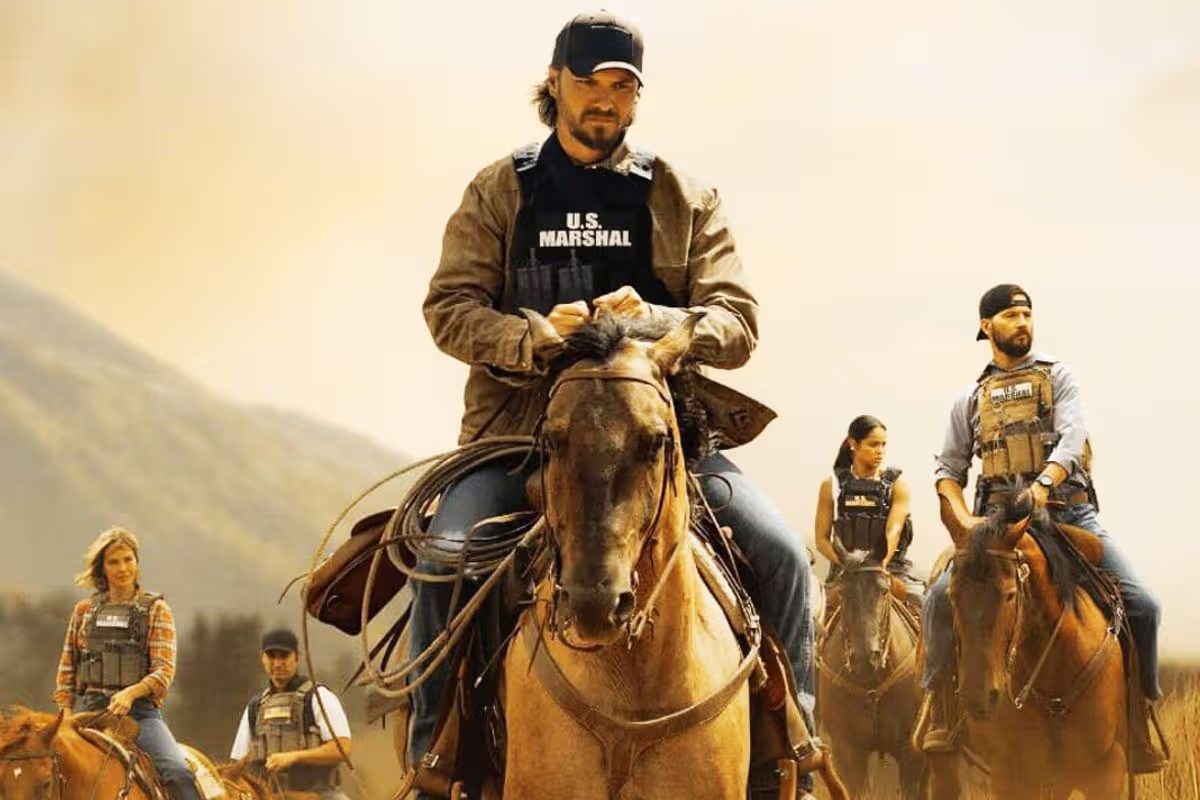The new Yellowstone spin-off Marshals features a stellar cast of recognisable faces, so where might fans already know them from?
Marshals: A Yellowstone Story has just begun, with Kayce Dutton (played by Luke Grimes) returning to screens in an exhilarating series premiere.
The new spin-off began on CBS last Sunday night (1st March) in the US, with new episodes also dropping each Monday on Paramount+ across the globe.
Picking up from the fifth and final season of the flagship Western drama created by Taylor Sheridan, the series follows Kayce Dutton (played by Luke Grimes) as he joins a team of US Marshals who fight violent crime across Montana.
With countless Yellowstone fans expected to tune in, fans will no doubt be wondering where they recognise the show’s brilliant cast of newcomers and old favourites.
Let’s take a look at some of the biggest names gracing the screens in the latest epic chapter in the Dutton saga.
Who stars in Marshals: A Yellowstone Story?
Luke Grimes will be reprising his leading role as Kayce, with fellow Yellowstone star Brecken Merrill also returning as his on-screen son, Tate. Away from the hit Western franchise, Merrill has also appeared in the 2025 thriller film Lifeline.
Grimes has recently appeared in the film Eddington, starring Joaquin Phoenix and Pedro Pascal, and has also starred in the Fifty Shades of Grey trilogy as Elliot, the younger brother of Jamie Dornan’s Christian Grey.
Two additional stalwarts from the original series are confirmed to be returning: Gil Birmingham as Chief Thomas Rainwater, the Chairman of the Broken Rock Reservation, and Mo Brings Plenty as his trusted aide, Mo.
Birmingham is perhaps best known for his roles in the Taylor Sheridan-scripted films Wind River and Hell or High Water, as well as for playing Billy Black in the Twilight films. Mo has appeared in the films Jurassic World Dominion and Dead Man’s Hand, as well as TV shows The Good Lord Bird and Lawmen: Bass Reeves.
The main cast is rounded out by four newcomers portraying Kayce’s colleagues with the US Marshals. They are Arielle Kebbel (The Vampire Diaries) as Belle Skinner, Ash Santos (American Horror Story) as Andrea Cruz, Tatanka Means (Killers of the Flower Moon) as Miles Kittle, and Logan Marshall-Green (Upgrade) as Pete Calvin.
Kebbel has also appeared in hit shows such as Gilmore Girls and co-starred with Grimes in Fifty Shades Freed, while Marshal-Green is recognised for his roles in Spider-Man: Homecoming, Prometheus, and When They See Us.
Meanwhile, Santos has appeared in Lindsay Lohan’s Christmas rom-com Our Little Secret, Mayor of Kingstown, and Pulse, and Means is also known for Western drama series The Son, Reservation Dogs and Kevin Costner’s ambitious Horizon film series.
Brett Cullen (The West Wing) is also set for recurring appearances as Harry Gifford, the head of Montana’s US Marshals unit who distrusts Kayce and the rest of the Duttons.
Ellyn Jameson Barry also has a recurring role as Dolly Weaver, while the first season has so far featured guest appearances from Chad Michael Collins (Sniper) as Owen Kilborn, and Loren Anthony (The Lone Ranger) as Jim Kane
Paramount+ half price sale

Paramount+ is offering 50% off its Standard and Premium subscriptions until July 10.
Finally, main cast member Kebbel has hinted that several “recognisable” country music stars will be making guest appearances throughout the series.
This includes singer Riley Green making his acting debut, while others will be making cameo appearances performing some of their hit tracks. Keep your eyes peeled for some familiar faces.
Marshals: A Yellowstone Story continues Sundays on CBS and Mondays on Paramount+.
For the latest showbiz, TV, movie and streaming news, go to the new ** Everything Gossip ** website.
Ensure our latest headlines always appear at the top of your Google Search by making us a Preferred Source. ** Click here to activate** ** or add us as your Preferred Source in your Google search settings.**

